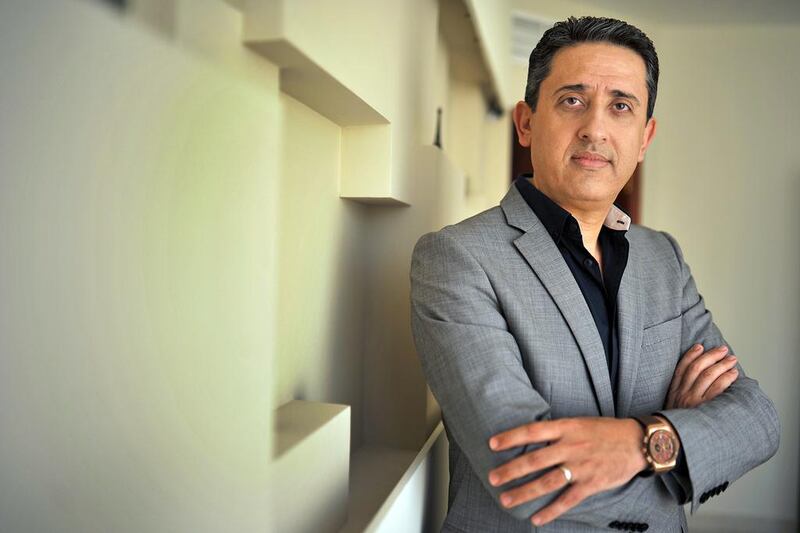ABU DHABI // The UAE needs more psychiatric and rehabilitation services in the public and private sectors with one health professional calling for a tenfold increase in staff numbers.
Currently, Sheikh Khalifa Medical City, one of Seha’s healthcare facilities, is the only government hospital in Abu Dhabi that offers psychiatric and rehabilitation services. SKMC doctors do rounds at Mafraq, Corniche and Al Rahba hospitals, in addition to crisis interventions and home visits.
Its psychiatry centre, the Behavioural Sciences Pavilion (BSP), took 41,000 outpatients last year, a number that is rising after the introduction of a 20 per cent insurance copay last July for treatment at private facilities.
Dubai has two public psychiatric facilities and a lack of public mental health rehabilitation services and support groups, health professionals said.
“As far as I know, there are no non-addiction support groups. Patients with mental illnesses are caught in a vicious cycle where they may receive the treatment but they find no support from the community and so many are isolated and put out of their jobs as a result,” said Dubai hospital psychiatrist Dr Motaz Al Shami.
Consultant psychiatrist Dr Abdulnaser Arida, who works at Abu Dhabi’s only specialised private psychiatric centre - the American Centre of Psychiatry and Neurology, said that the private sector was also lacking as some patients from the Western Region drove three hours to see him.
“There are no psychiatrists in the Western Region - they all come to us,” he said. “We also have patients coming from Al Ain.”
On average, Dr Arida said he sees 25 patients per day, five of whom are new. Some are as young as two years old and his eldest patient is a 100-year-old who has dementia and depression.
“Additional facilities and easy access will help reduce the stigma of mental illness,” he said.
Sara Sherbaji, a cognitive trainer at a Dubai disabilities training centre, said that she has yet to see a UAE-wide campaign on mental health awareness.
Ms Sherbaji and a team of professionals are working on a 10-minute documentary on metal illness.
“We want to do workshops and be engaging as much as we can. We would like there to be support communities for patients. Everywhere in the world, there are different organisations and large, national campaigns dedicated to the reduction of stigmas, except here.”
At Dubai public hospitals, she said it “takes a couple of months to get an appointment with a psychiatrist - the waiting list is quite long”.
“To close our resource gap, the number of psychiatrists should increase even more that tenfold in the UAE and must climb up to 10 psychiatrists per 100,000 people. Every community should have a local facility with psychiatric expertise and with a wider range. Every city should have several research institutes working on preventive measures,” Ms Sherbaji said.
There are 0.3 psychiatrists per 100,000 population in the UAE, according to the World Health Organisation.
By comparison, there are 14.63 per 100,000 in the UK and 12.4 per 100,000 in the United States.
The stigma of mental health issues persists in the UAE, said Dr Arida, and a lack of facilities only enforces it.
“We have patients who are too scared to park their cars in front of the centre in fear that someone might recognise their plate number,” he said. If a patient accidentally runs into another, they make up excuses for why they are there, he added.
“If you have more clinics, then more patients will come forward and we will have less of a stigma,” Dr Arida said, adding that many patients do not even know that there are clinics available.
Faisal Abdulla, a psychiatrist at SKMC’s BSP community psychiatry department, said: “We want people to know that our services are available and 100 per cent confidential.
“Many people still don’t know what our services are, which is why many people don’t seek help.
“Beyond the fact that we provide you with inpatient care and outpatient care, follow-up care and programmes like the day care centre and so on but also, if you are unable to come to the hospital, we come to you.”
The hospital does up to 300 home visits every month.
Home visits are only for Emiratis but the day care centre’s vocational training is for both locals and expatriates.
SKMC is the only hospital in Abu Dhabi with inpatient psychiatric care.
“We have 125 beds, which are mostly full, but we also have a high turnover,” Dr Abdulla said. “Inpatient care ranges from a few days to a maximum of 15 days. We keep patients until they are stable enough to go home. Institutionalising psychiatric patients is not in any shape or form beneficial for the patient.”
SKMC’s main goal, he said, is “psycho-social rehabilitation. The idea is that you if you have the most chronic and untreatable type of mental disorders, we still want you to be part of society, above all”.
However, Dr Abdulla said there is a need for more decentralised psychiatric services.
“Even though we offer comprehensive psycho-social rehabilitation services, I think it would help patients if we offer services closer to home,” he said.
salnuwais@thenational.ae





